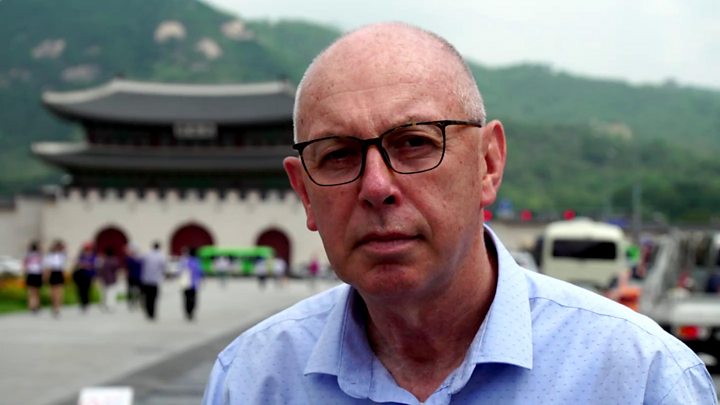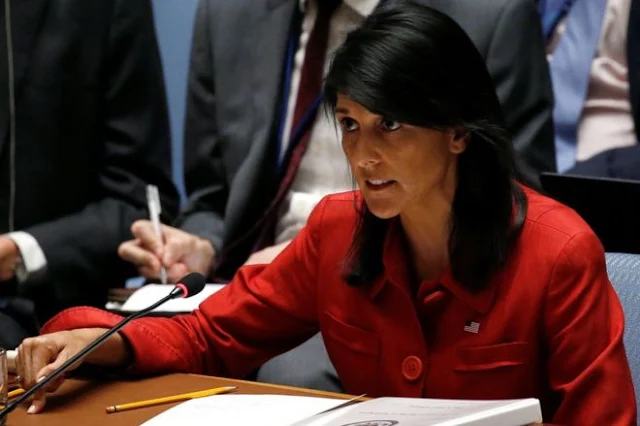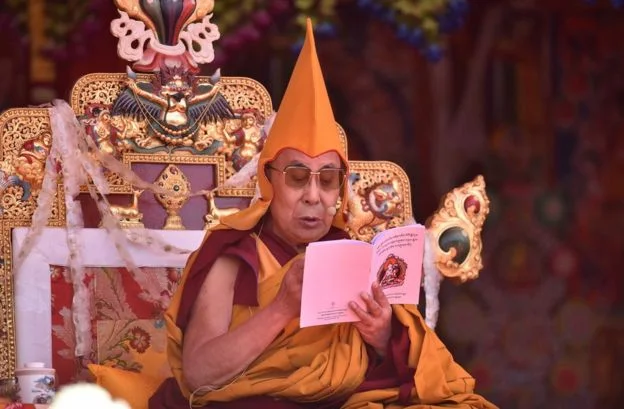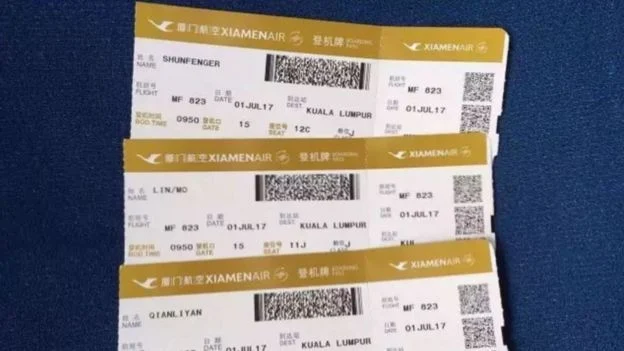The US has said it will use its "considerable military forces" on North Korea "if we must", following Tuesday's long-range missile test.
US ambassador Nikki Haley said a new resolution will also be tabled against Pyongyang at the United Nations.
She described the test as a sharp military escalation and also threatened to use trade restrictions.
The missile launch, the latest in a series of tests, was in defiance of a ban by the UN Security Council.
Meanwhile, US Defence Secretary Jim Mattis and his Japanese counterpart Tomomi Inada said the test was an "unacceptable provocation".
A statement released by the US defence department said the two spoke on the phone, where Gen Mattis said the US was committed to defend Japan and provide deterrence.
- Is the new missile test a game-changer?
- Can the US defend itself against N Korea?
- Possible solutions to crisis
Ms Haley said on Wednesday that North Korea's test launch of an intercontinental ballistic missile (ICBM) was "quickly closing off the possibility of a diplomatic solution".
"The United States is prepared to use the full range of our capabilities to defend ourselves, and our allies," she told the UN Security Council, which met for an emergency session to discuss the test.
"One of our capabilities lies with our considerable military forces. We will use them, if we must, but we prefer not to have to go in that direction," she said.
Ms Haley, who said she discussed the issue with the president, said the US could cut off trade with countries which continued to trade with North Korea in violation of UN resolutions.
"We will look at any country that chooses to do business with this outlaw regime," she says.
Earlier, US President Donald Trump criticised China for its trade with North Korea.
Mr Trump has arrived in Warsaw where he is due to meet Chinese President Xi Jinping for the second time. He will later travel to Hamburg for the G20 summit, where world leaders are expected to discuss the missile test.
What have other countries said?
The French ambassador told the UN Security Council that France also favours a new resolution on North Korea, which would tighten sanctions.
Russia, which condemned the test, said the possibility of using military measures "should be excluded".
China's representative said North Korea's actions were unacceptable, but also repeated China and Russia's call for all involved to stand down.
They have proposed that while North Korea halts its missile and nuclear programmes, the US and South Korea freezes their joint military exercises and also reverse plans to deploy a controversial anti-missile system in the South.
Both Russia and China are permanent members of the UN Security Council and could veto any new resolution.
What has North Korea said?
Tuesday's launch was North Korea's first-ever test launch of an intercontinental ballistic missile (ICBM).
State news agency KCNA quoted leader Kim Jong-un as saying the test was a "gift" to the Americans on their independence day.
The report warned of the possibility of more tests, saying he had ordered officials to "frequently send big and small 'gift packages' to the Yankees".

Pyongyang said earlier the Hwasong-14 ICBM had reached an altitude of 2,802km (1,731 miles) and flew 933km for 39 minutes before hitting a target in the sea.
North Korea, it said, was now "a full-fledged nuclear power that has been possessed of the most powerful inter-continental ballistic rocket capable of hitting any part of the world".
But while experts agree that the test shows Pyongyang has a long-range projectile, many are sceptical that its missiles can successfully deliver warheads.
- A long-range missile usually designed to carry a nuclear warhead
- The minimum range is 5,500km (3,400 miles), although most fly about 10,000km or more
- Pyongyang has previously displayed two types of ICBMs: the KN-08, with a range of 11,500km, and the KN-14, with a range of 10,000km, but before 4 July had not claimed to have flight tested an ICBM. It is not clear what differentiates the Hwasong-14
- BBC NEWS




















